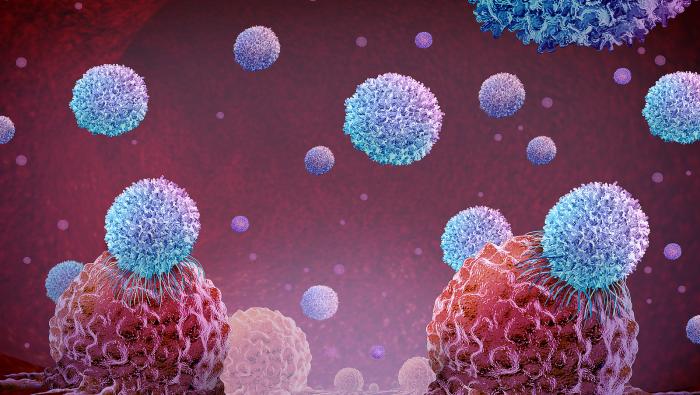Cancer

Despite advances in research and treatment in recent years, cancer continues to pose significant medical challenges, remaining one of the world's major causes of death, and affecting millions of people every year. Today, more than 200 types of cancerous tumors are known to science, differentiated by the different organs and types of cells involved.
What is Cancer?
Cancer is the name of a group of diseases characterized by the unrestrained growth of the body’s cells. The term ‘cancer’ was coined in 400 BC by Hippocrates, who is considered to be the father of medicine. He used the word ‘karkinoma’ (‘cancer’ in ancient Greek) to describe skin tumors that he considered to have the shape of crabs because they had “bodies” and “extensions”.
Cancer cells look and function differently from healthy cells and divide much faster. While normal cell division is a highly controlled process, cancer cell division is uncontrolled and continues uninterruptedly.
Cancer Research
The Dangoor Center for Personalized Medicine at Bar-Ilan University encourages multidisciplinary cancer research with a focus on precision medicine. The Center facilitates collaboration among dozens of scientists and researchers from the university's leading research laboratories, who are globally renowned for some of the most significant scientific breakthroughs in recent years. Our researchers devote their lives to uncovering the biological mechanisms and dynamics of cancerous tumors, understanding the genetic mechanisms involved, and developing advanced measures to characterize and identify new drugs and novel treatment strategies suitable for individual patients and targeting their specific tumors.
One of the main reasons that many cancer treatments are ineffective is that they are not targeted for individual patients and their precise cancer mutations. Through the genetic sequencing (reading the genetic code) of cancerous tumor, scientists can now identify the mutations involved and adjust the drug for a specific patient. This way, therapies can be developed to target particular cancer cells and their associated mechanisms, leaving off-target healthy cells unharmed.
Researching the Biological Mechanisms of Cancer: The Basis for Developing Effective Treatments
Studies in the field of cell biology help scientists understand the various mechanisms that play a role in the development of cancer. This research field is broad and encompasses molecular, structural, biochemical, genetic and epigenetic mechanisms. The information obtained from such research is of great biotechnological and medical value and may be used to identify, diagnose, and prevent diseases, establish disease models, understand their mechanisms, and even develop laboratory models comprising cells, tissues and artificial organs for researching and curing various diseases.
Immunotherapy: Harnessing the Body's Immune System
Our researchers have had significant scientific breakthroughs in the field of immunotherapy, which is based on harnessing the patient's immune system to fight cancer. The immune system of a healthy individual constantly works to protect the body from pathogens and cancer cells. But some cancer tumors have the ability to induce conditions in their cellular environment that inhibit the immune system’s ability to attack them. Our scientists have uncovered some of the mechanisms involved in these processes, and have even identified and developed molecules that prevent the inhibition of the immune system and help it eradicate cancerous tumors. In addition, using genetic engineering tools, our researchers have used immune cells of cancer patients to target their own cancer cells. Our studies have also contributed to the understanding of the interactions between different types of immune cells and cancerous tumors.
Based on the scientific discoveries of our researchers, scientists around the world are developing novel treatments that help the body effectively target and fight cancer.




